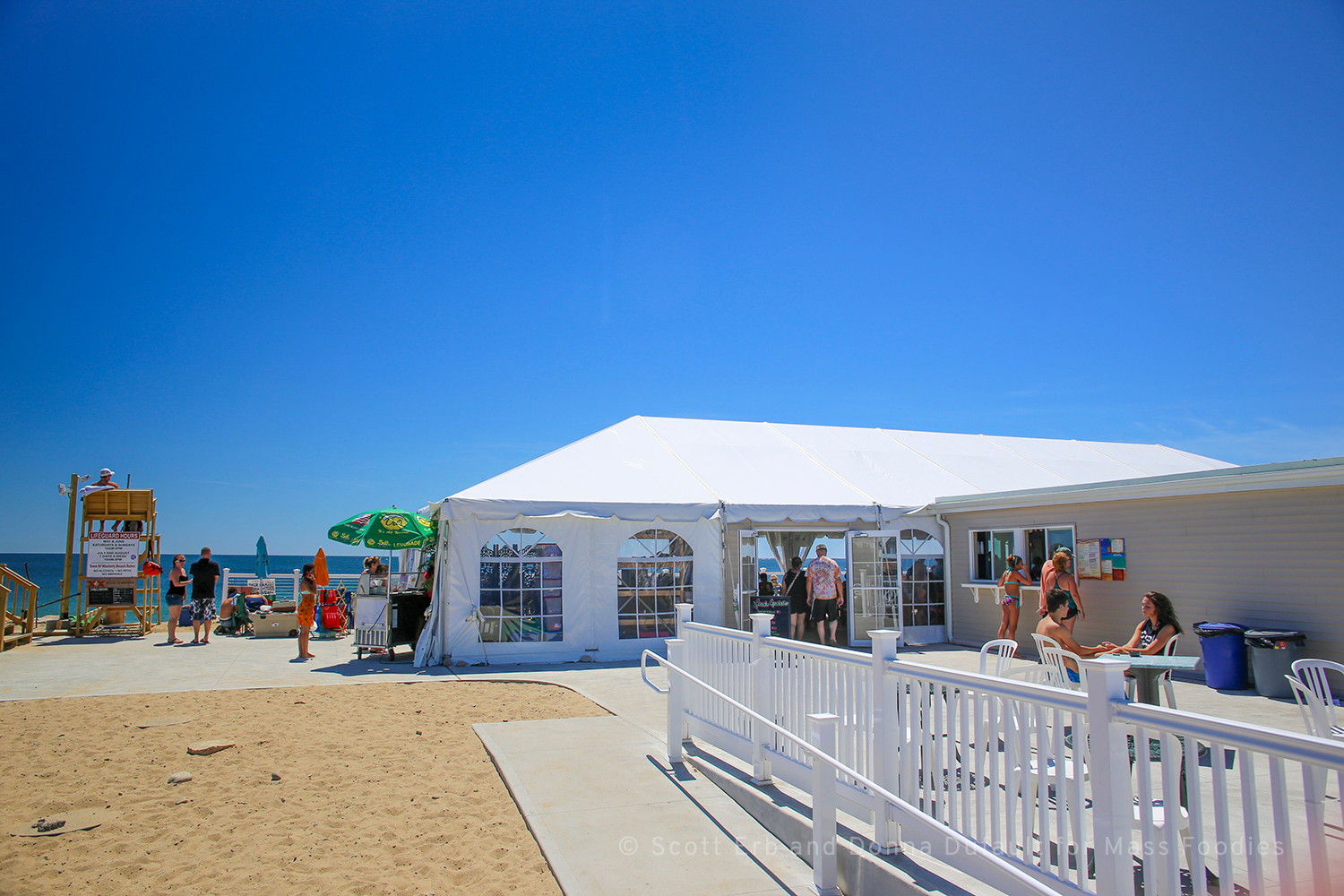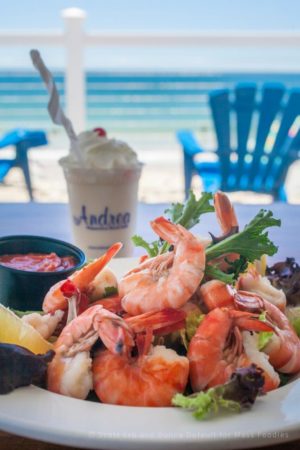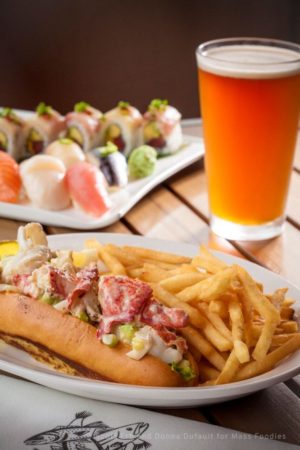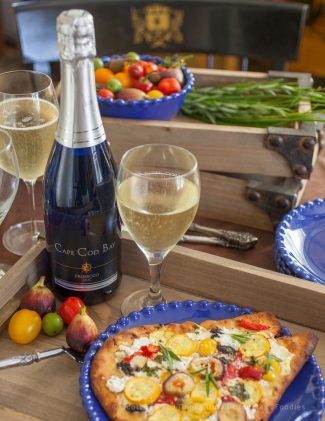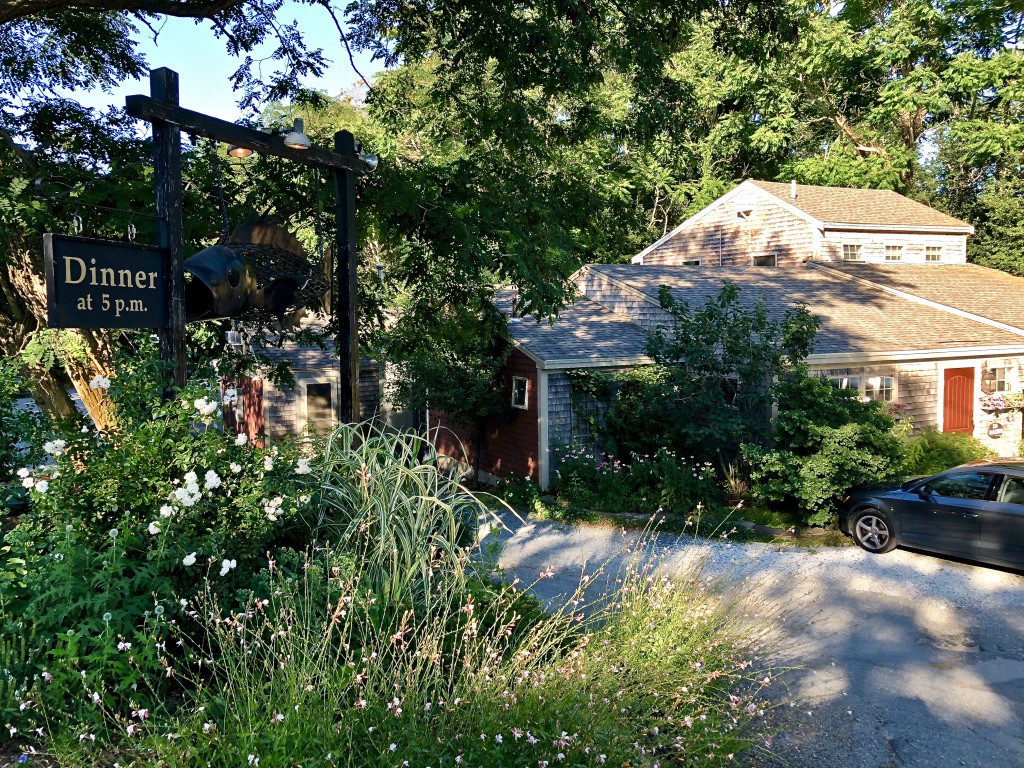
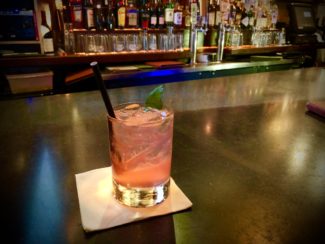
Truro is a destination lauded by families on the outer Cape for its stunning seascapes, picturesque hiking trails, and beachside bonfires. It has a sophisticated side as well, playing home to both a winery and a first class restaurant – blackfish.
Blackfish lives in harmony with Truro’s old fashioned sensibilities. Located in a former blacksmith shop near the center of town, the shingled dinnerhouse offers polished cuisine hedged with anvils and cattle yokes.
Guests wait for tables watching vintage surfing footage of Colin McPhillips while they sip sherry cocktails at the bar. Light beams down from cylindrical patchwork fixtures and up from portholes in the bar’s copper-top surface. A fish pieced together from beach-cycled materials hangs over the doorway like a nautical Terminator ready to strike.
There is no coherent dress code. On our last visit, most of the servers donned linen tunics and chunky jewelry.
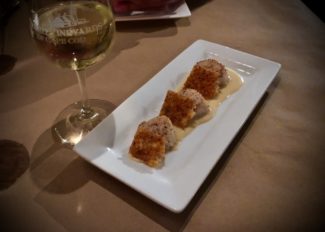
The host was dressed like a 1960’s mod-girl in giant monochromatic boots.
The customers fluctuated from birkenstocks to Birkin bags, and no one much cared about the fashion so much as the menu.
Entering the dining room is like finding a passageway into the Queen of Heart’s rose garden. There is a sensation that the Twiggy-spirited host has led you underground, followed by the realization that wall-to-wall windows are the only thing between you and an abundant chef’s garden.
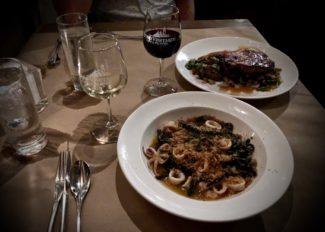
Candles levitate. Glasses sweat. Tentacles wiggle. Blackfish penetrates the melodrama of dining.
Order the pan seared sea scallops over parmesan fondue cut with a crisp glass of sancerre. Twirl your fork in a bowl of black bucatini to let loose plumes of aromatic steam laced with vermouth and chili butter.
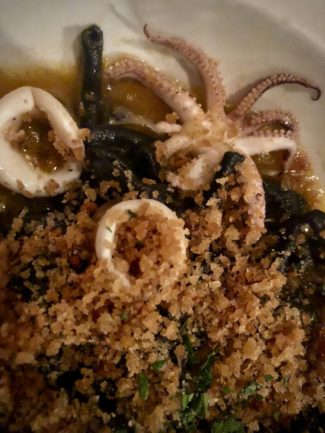
Admire the abilities of a pan roasted Chatham squid to transform its tender little self based on its surroundings. The heritage pork chop with roasted sunchokes, escarole, and white beans will leave you feeling wistful while the tuna bolognese over fresh pappardelle with mascarpone and lemon confit will take to your heart. Blackfish is wrought with romance.
If your not sure an evening out is in the cards for your Cape Cod vacation, the restaurant also operates a food truck called Crush Pad at Truro Vineyards seven days a week. This approachable peek inside the blackfish psyche includes fast-casual bites like a kobe beef hot dog topped with kimchi, and a farro and white bean burger. Who knows, if they hook you, maybe you can hitch a ride to blackfish. Dinner starts at five o’clock.

